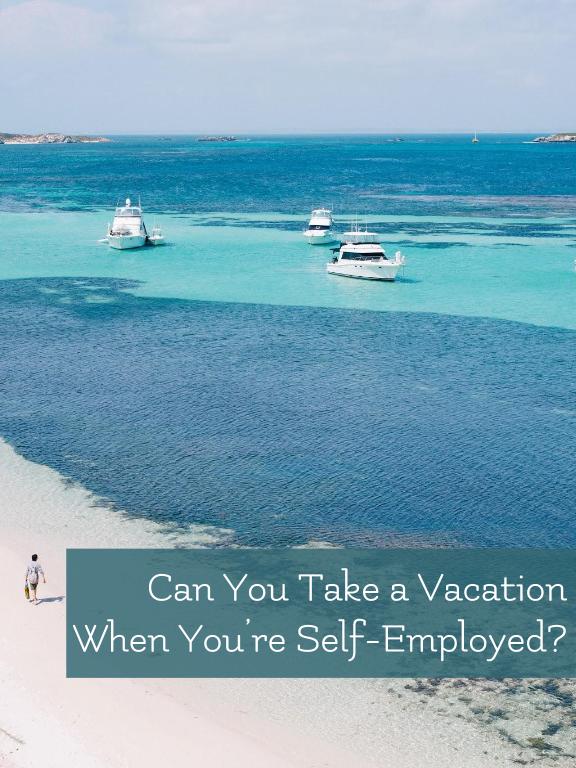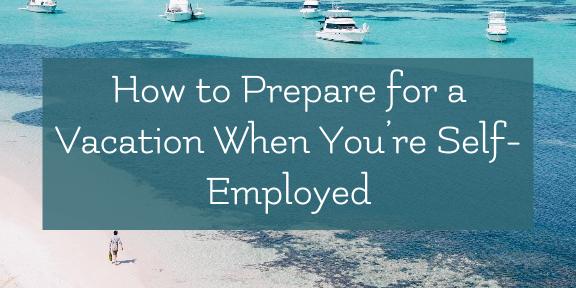Have you seen that statistic going around about vacation days in the US?
Apparently a lot of them go unused.
Workers in other countries are better at taking the time off that they need, and I am right with them there. I think time off is essential to being your happiest and most productive self. (Plus, there’s so much world out there — we should make an effort to see it!)
This year I’ve already gone to Savannah, Georgia for a getaway with my husband; Lafayette, Louisiana to see my parents; and San Antonio, Texas to see my grandparents. In the next two months, I’ll take a trip with my husband’s family to celebrate my in-laws’ anniversary and spend a week at the beach with friends from college.
I know what you’re thinking after reading all that — how the heck to I run a business that makes any money?
As hard as taking vacation days seems to be for traditional workers, it’s even harder for the self-employed. After all, unless you have a very solid passive income set up, if you don’t work you don’t get paid. And what if clients email you needing something? What if you have deadlines during that time?
If you want to take time off, I’ve got some good news for you:
It’s very possible to take a vacation when you work for yourself — it just requires a bit of preparation first.
Work Ahead
Working ahead of schedule is something we all know we should do but don’t always manage. But when you’re self-employed and want to take a vacation, it becomes essential.
In order to take time off without losing money, you need to schedule the same amount of work that you would have done otherwise, and then do it before you leave.
Yes, you’ll be really busy for a week or two. But you’ll keep your income stable and give yourself more time to enjoy your trip. Plus, think how impressed your clients will be to get all your deliverables ahead of schedule.
Decide How Available You’ll Be
Part of the reason I switched to freelance work was so that I’d have the time and ability to travel, especially when it comes to seeing family. With that comes a trade-off, though: I often have to take my work with me.
This doesn’t bother me: as long as I have a computer and an internet connection, I can get some work done, answer emails, and do a few other things here and there. I generally don’t spend more than an hour or two a day on work when I travel, but I do something most days.
Whether that system works for you depends on you and where you’re going, but it’s important to make a deliberate decision about it: how available will you be when you travel? Will you:
- devote time each day to work?
- respond to emails and calls but nothing else?
- put in a regular work day every few days?
- unplug completely?
Once you’ve decided how available you’ll be, stick to it. Nothing can ruin a vacation more than finding yourself taking more time out to work than you wanted to. It’s also important to explain your work situation to anyone traveling with you. Because nothing can frustrate you faster than trying to get some work done and being constantly interrupted.
Let Clients Know
If you know you’re going to be unavailable for a certain amount of time, you need to let any regular customers or readers know. That could mean:
- emailing individual clients to tell them when you’ll be away
- putting a sticky post on your blog saying that you’re unavailable
- posting a banner on your shop page letting customers know when orders will ship
Depending on your relationship with your clients or customers, you may want to let them know ahead of time, then remind them just before you leave. Whatever method you choose, it’s important to let the people who depend on you know what your schedule is.
Set Up an “Out of Office”
I generally check my email when I travel, but I don’t do it right away. Instead, I always put up an out of office message that lets people know I’m traveling and my response will be a little delayed, thanks for your patience. I used to add that if something needed my attention urgently, they could email me back and add URGENT to the subject line.
But I’ve stopped doing that last bit, because really, no one sends urgent emails. Especially not to their web writer. Most things can wait a few days. So give yourself permission to unplug (and your clients permission to go do other things) and set up an out of office.
Hire Help
There comes a time in every business owner’s life when they need somebody on their team, because no one person can do everything.
This is true in general, but it’s especially true when you want to take a vacation. Hiring help is the key to giving yourself absolute permission not to work. Wondering what sort of help you might need? You can hire:
- a VA to check, sort, and respond to emails
- a blog editor to proofread, find images, post, and respond to comments
- in-store help with sales and shipping
- a ghostwriter/ghostwriting team to keep producing content
- a social media manager to post, share, and respond online
Best of all? Hire a regular (virtual or in person) assistant to do all of the above. Not only will you be able to take a vacation free and clear, but you’ll be able to focus on growing your business on a regular basis, rather than constantly scrambling to get everything done on your own.
Do you think it’s possible for the self-employed to take a vacation?
What tips do you have for making it work?
P.S. – making work and travel work + outsource blog posts without losing your voice


Hi! I think it’s possible to take a vacation when you’re self-employed but it’s not always easy. When you work for yourself it’s very easy to take work with you when you go on vacation.
Kasia, I love the distinction you make between “possible” and “easy.” Because you’re right — so often a vacation is possible because we take our work with us! The trick is finding time to actually relax and take a break while we’re traveling…!